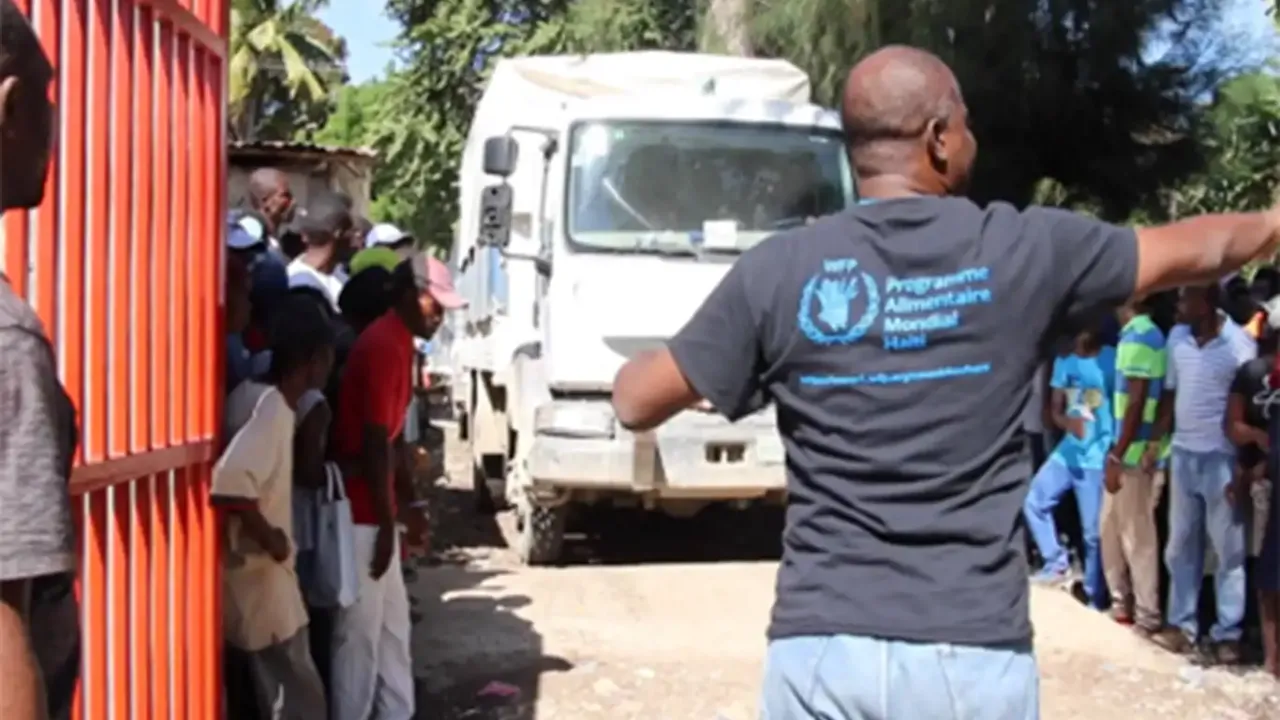The latest Integrated Food Security Phase Classification (IPC) analysis reveals a steady increase in the number of acutely hungry people in Haiti – with nearly half the population of Haiti or 4.9 million people now struggling to feed themselves.
The worrying trend shows a steady deterioration of food security, with the number of hungry people going up threefold since 2016.
“Haiti can't wait - we cannot wait for the scale of the problem to be expressed in deaths before the world responds - but that is where we are heading,” said Jean-Martin Bauer, WFP Country Director in Haiti.
In the poorest neighborhoods of Port-au-Prince, the epicenter of violence in Haiti, families have been living under the control of non-state armed groups with debilitating restrictions to movement and access to food, water and sanitation services. The constant threat of gang violence disproportionately impacts women and girls.
Soaring inflation has made a basic food basket unaffordable for millions of Haitians. Haiti is among the ten countries most affected by food price inflation, according to the World Bank. Eight out of ten Haitians are currently cutting back on meals. In addition, farmers will be forced to reduce the areas sown due to ongoing violence and the high cost of inputs like seeds and fertilizers, further amplifying the fall in purchasing power, especially for the most vulnerable. The spread of armed groups to rural areas, including the Artibonite Department, Haiti"s breadbasket, is further cause for alarm.
The colliding emergencies are having a particularly severe impact on the health and nutrition of Haitian children who have limited access to nutritious food. Lack of nutritious food is compromising their immunity making them especially vulnerable to diseases including cholera. Malnourished children carry with them lifelong health issues including poor cognitive development.
However, a slight glimmer of hope appears in the particularly vulnerable area of Cite Soleil in Port-au-Prince where sustained humanitarian support has managed to lift Haitians out of 'Catastrophic" hunger (IPC 5) that was previously recorded. This victory remains fragile as any disruption to humanitarian support for these people could result in deepening hunger – these gains must be preserved at all costs.
However, WFP"s operations in Haiti are grossly underfunded and require US$ 125 million over the next six months. More is needed from donors to close this gap and reverse the negative spiral in which the country finds itself.
“It is critical that both lifesaving food assistance keeps reaching the most vulnerable Haitians and resilience and safety-net initiatives continue being prioritized so we can address the root causes of hunger,” added Bauer. “We desperately need an increase in funding and political will to be mobilized. The world cannot wait for a big disaster before it acts.” (ILKHA)








